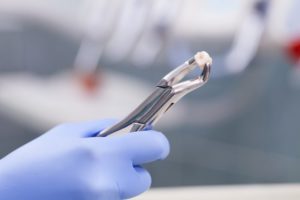 If your tooth is severely damaged or you need to have certain teeth removed because they are causing harm to neighboring teeth, you might need to have a tooth extracted. If you need to have a tooth extraction in Towne Lake performed, it’s important that you understand how long the healing process takes following your treatment. If you aren’t sure how long your aftercare should be, what to do if problems arise, or the tips to keep yourself comfortable during recovery, you’ll want to keep reading.
If your tooth is severely damaged or you need to have certain teeth removed because they are causing harm to neighboring teeth, you might need to have a tooth extracted. If you need to have a tooth extraction in Towne Lake performed, it’s important that you understand how long the healing process takes following your treatment. If you aren’t sure how long your aftercare should be, what to do if problems arise, or the tips to keep yourself comfortable during recovery, you’ll want to keep reading.
How Long Does It Take to Heal After an Extraction?
Regardless of the type of oral surgery you have, it’s very important that you allot time to heal and relax. Most dental extractions do not require more than a few days to recover from, so you should be able to resume normal activities within a week of having the tooth removed.
The good news is during this healing period, there are many ways you can minimize not just discomfort, but the risk of complications as a result of your extraction. Immediately following your procedure, the dentist will go over any medications that you’ll be taking to keep you comfortable.
Essential Aftercare Tips to Know
In order to reduce your risk of an oral infection and ensure a speedy recovery, take note of the following aftercare tips:
- Take painkillers as instructed by your dentist.
- After the tooth is extracted, you’ll be asked to firmly bite down onto a gauze pad. This allows a clot to form on the socket where your tooth was. When this pad becomes soaked with blood, replace it with a new one as needed. Always replace it every three to four hours regardless.
- Rest for 24 hours following the extraction. Limited physical activity for the next day or two.
- Do not rinse or forcefully spit for the next 24 hours. Do not drink from a straw either.
- Do not smoke as it inhibits healing.
- The day after your extraction, stick to soft foods like soup, applesauce, yogurt and pudding.
- Keep your head elevated while lying down to promote healing.
- Maintain your brushing and flossing routine. Avoid the extraction site while do.
- Twenty-four hours after your extraction, you can also rinse your mouth out with a solution made from ½ teaspoons of salt and 8 ounces of water.
What to Do If Discomfort Does Not Go Away
Once the anesthesia begins to wear off, you may start to feel some soreness following your extraction. You may also notice swelling, which can be managed by applying a cold compress to your cheek for 10 minutes at a time, then remove it for an additional 10 minutes. However, if you notice any of the following symptoms after your procedure, call your dentist as soon as possible:
- Severe pain or bleeding more than four hours after your tooth is pulled
- Fever or sudden chills (signs of an infection)
- Nausea or vomiting (severe or otherwise)
- Cough or shortness of breath
- Chest pain
- Redness, swelling or excessive discharge from the socket
Not sure what to expect from your tooth removal in Towne Lake? Need help preparing? Contact your dentist to learn more about what to expect!
About the Author
Dr. Haren Patel earned his dental degree from the University of Illinois at the Chicago College of Dentistry. He’s trained to perform tooth extractions and help all patients prepare for the necessary aftercare that accompanies them. To schedule your next appointment with his office, you can contact him through his website.
